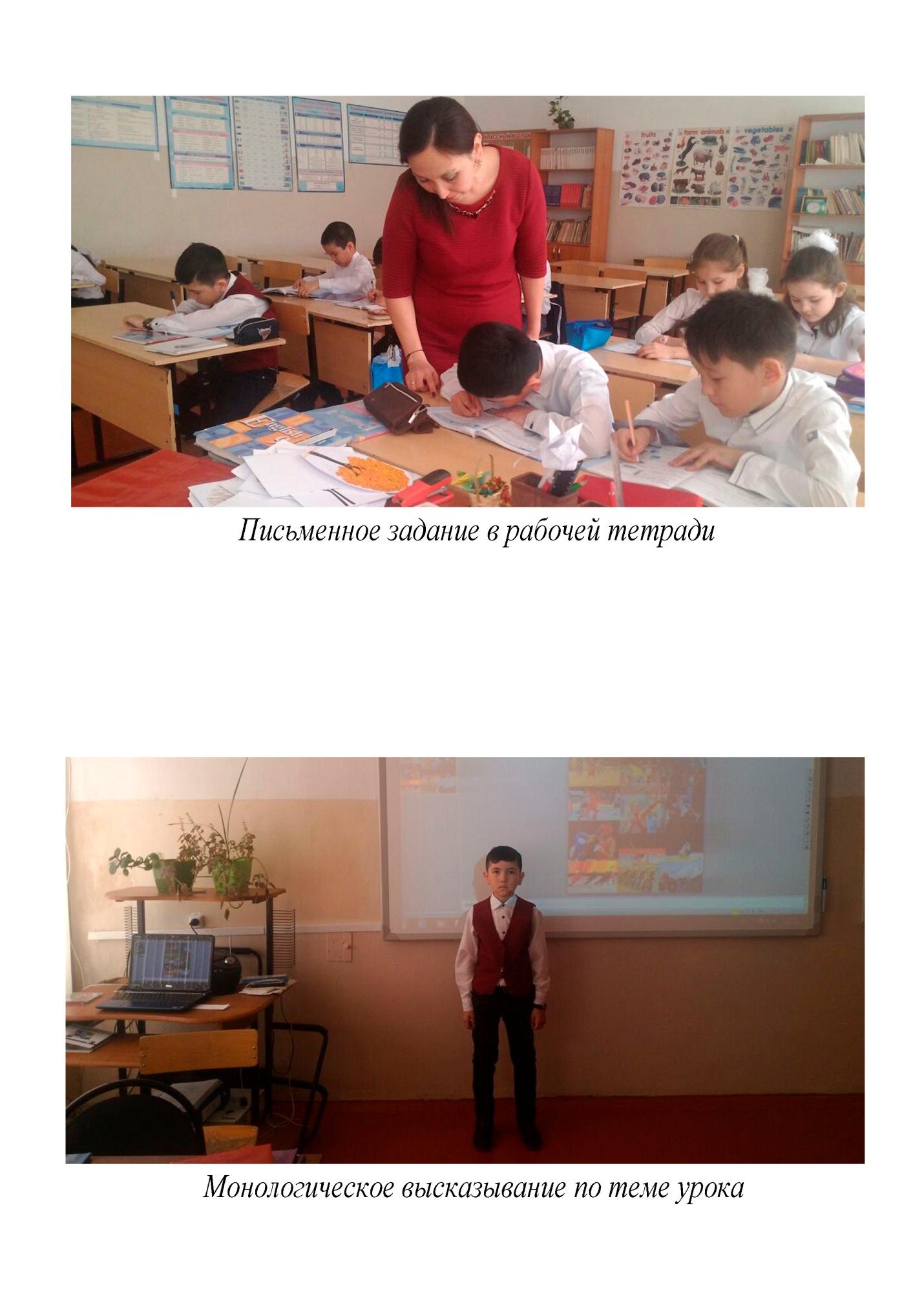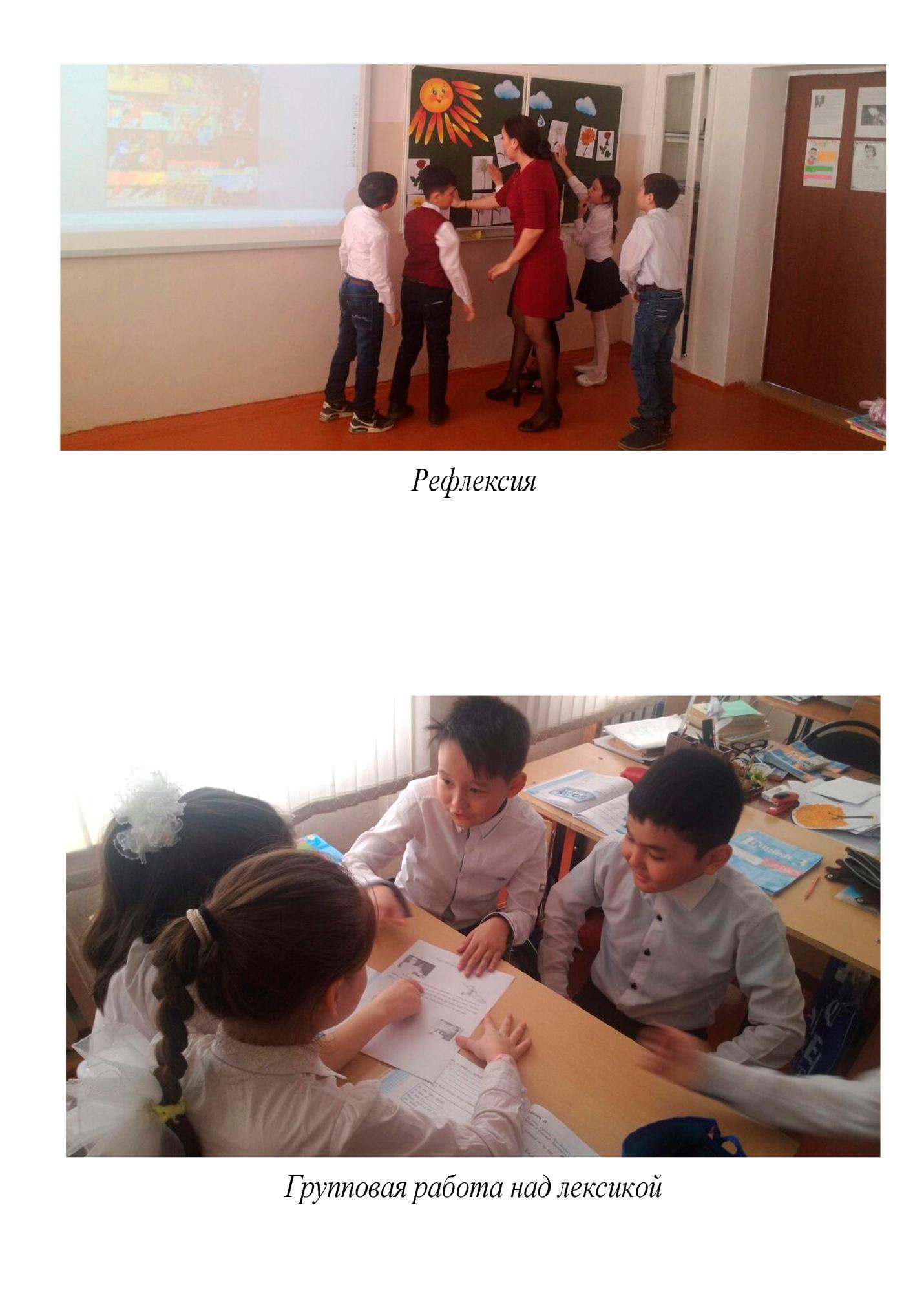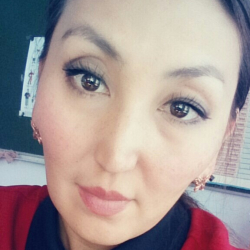Государственное бюджетное общеобразовательное учреждение
средняя школа № 7 им. М.К. Янгеля
Открытый урок
« My favourite season »
Бердиева Майнур Балтабаевна
учитель английского языка
Конспект урока английского языка
Дата: 28.02.2017 г.
Учитель: Бердиева Майнур Балтабаевна
Учебный предмет: английский язык
Класс: 3 класс
УМК: «Английский язык 3» В.П. Кузовлев, Н.М. Лапа, И.П. Костина, Е.В. Кузнецова, Москва «Просвещение» 2016.
Тема урока: «My favourite season»
Цель урока: активизировать изученный лексико- грамматический материал по теме “Времена года”
Основные задачи урока:
Общеобразовательные:
Повторить изученную лексику, фонетику;
способствовать развитию памяти, внимания, логического мышления.
Развивающие:
формировать мотивацию к изучению иностранного языка;
развивать навыки диалогического общения;
развивать навыки монологической речи;
Практические:
анализировать употребление лексики,
совершенствовать навыки чтения, монологической и диалогической речи.
Воспитательные:
воспитывать понимание красоты и разнообразия окружающего мира;
воспитывать эстетический вкус;
воспитывать бережное отношение к природе.
Тип урока: Урок закрепления и обобщения знаний и умений
Формы организации работы детей: парная, индивидуальная, групповая, проектная работа.
Методы: активные, интерактивные, метод проектов.
ХОД УРОКА
Организационный момент.
Teacher: Good morning, children! I’m glad to see you!
Pupils: Good morning dear teacher! We are glad to see you, too!
Teacher: Thank you, sit down. What mood have you got?
Pupils: We are fine!
Teacher:I’m glad to hear it. I’m fine too because the winter is coming to the end. Today is the last day of winter. Hurrah ! Soon it will be spring!Nature awakens after long winter sleep. The days became warmer and sunnier. Trees and grass became green. Birds came back from the south. Everything is beautiful now. I see you are ready to work hard at the lesson. And now let’s sing a song “My favourite season”. (Дети хором поют песню.)
“My favourite season”
Spring is my favourite season?
And let me say you a reason: I love spring, because I love flowers.
Spring is my favourite season.
Summer is my favourite season?
And let me say you a reason: I love summer, because I love the sun!
Summer is my favourite season.
Autumn is my favourite season?
And let me say you a reason: I love autumn, because I love the rain!
Autumn is my favourite season.
Winter is my favourite season?
And let me say you a reason: I love winter, because I love the snow!
Winter is my favourite season.
Teacher:Fine! Children, do you understand the theme of our lessons.
Pupil 1: The theme of the lesson is “My favourite season”.
Teacher: Yes, you are right.Today we’ll have an unusual lesson. How do think what shall we do at the lesson?
Pupil 2:We’ll talk about the seasons and the weather.
Pupil 3:We’ll show our projects.
Pupil 4: We’ll make up dialogues.
Teacher:Yes, you are right. Let’s start our lesson!
Фонетическая зарядка:
Teacher: And now our phonetic drills. Repeat after me in chorus.
[s]-spring, summer, is, sun.
[w]- winter, white, warm.
[t] - autumn, bright.
Spring is green,
Summer is white,
Autumn is yellow
Winter is white.
Речевая зарядка.
Teacher: How many seasons are there in a year?
Pupil 1: There are four seasons.
Teacher: Which are they?
Pupil 2: They are: winter, spring, summer and autumn.
Teacher: How many months are there in a year?
Pupil 3: There are 12 months in a year.
Teacher: Which are the winter months?
Pupil 4:December, January and February.
Teacher: Which are the spring months?
Pupil 5:March, April and May.
Teacher: Which are the summer months?
Pupil 6:June, July and August.
Teacher: Which are the autumn months?
Pupil 7:September, October and November.
Контроль лексических навыков.
Teacher:And now children please, look at the blackboard and how do you think what shall we do with this exercise?
Pupil 1: We shall complete the sentences.
Pupil 2: We shall remember and use new words.
Teacher: Well done. Now let’s read the first sentence.
Spring comes after ___________.
Summer comes after __________.
Autumn comes after __________.
Winter comes after ___________.
Проверка домашнего задания. Совершенствование навыков монологической речи.
Teacher: It’s time to check your hometask. Your hometask was to prepare a project about your favourite season. Now we are going to speak about the season and you must guess what season is it. This season is beautiful. Everything in the streets is white and covered with snow. What season is it?
Pupils: It’s winter.
Teacher: That’s right. It’s winter. And let’s remember a poem about the winter. (Дети хором читают стихотворение про зиму.)
Winter
It is winter, it is winter,
Let’s us skate and ski.
It is winter, it is winter,
It is fun for me.
Teacher: Temirlan, will you tell us about this wonderful season? Please, come to the blackboard.
Temirlan: In winter the sun riseslate and sets early. The rivers and lakes are frozen over. Everything is covered with snow. Sometimes it’s very cold. Winter is a good time for sports. People go in for skating and skiing.
Teacher: It was rather good, thank you. Now we’ll speak about the next season. It is so nice! Nature awakens after a long winter sleep. We can see new green grass and new leaves on the trees. What season is it?
Pupils: It’s spring.
Teacher: Certainly, it’s spring. Let’s read a poem about spring.
Spring
Spring will bring rain,
Spring will bring sun.
Spring will bring fun
For everyone!
Teacher: Nursultan, tell us about spring. You are welcome!
Nursultan: When spring comes, nature awakens after a long winter sleep. The ground is covered with grass and spring flowers. The air is fresh, the sky is blue. The trees are in full blossom. The days are warm and everything is full of life and joy.
T: Very well, Nursultan. Sit down, please. Let’s speak about the next season. It’s very beautiful. Children like this season very much, because they can spend much time outdoors. Besides they have the longest holidays in this season. What season is it?
Pupils: It’s summer.
Teacher: Of course, it’s summer. Now I’d like to ask you to tell me the poem about summer.
Summer
In summer I like to play outside.
In summer I like to go to the seaside.
I like to pick up shells,
And put them on the shelf.
Teacher: Please, Damir, describe summer.
Damir: Summer is the hottest season of the year. The weather is usually fine,but it can be very hot, especially in July. In summer people try to get away from the city and spend more time in the open air. They swim in the rivers and lakes, go fishing and boating. Most people prefer to have their holidays in summer.
Teacher: Thank you very much for your interesting project. Sit down, please. Now only one season left: it is autumn. Let’s read a poem about autumn.
Autumn
Autumn leaves are falling down,
Falling down, falling down.
Autumn leaves are falling down,
Yellow, orange, brown and red.
Teacher: Ruslan, will you tell us about this wonderful season?
Ruslan: Autumn comes in September. The trees and grass become yellow, red and brown. It often rains. Birds fly away to warm countries.
Совершенствования навыков чтения.
Teacher: And now please open your Students Book at p. 29 ex. 1. What shall we do with this text? Shall we read this text?
Pupil 1: Yes, we shall read a story about Dan’s favourite season.
Pupil 2: We shall answer the questions. What is Dan’s favourite season? What weather does Dan like?
Teacher: Yes, you are right. Let’s read the text.
|
I like winter very much. In winter the days are short. But they are often sunny. It is sometimes snowy in winter. Trees are white and roads are white, too. That’s fantastic! When the weather is snowy, I go skiing. I like skiing very much. I like sunny, frosty weather. We play snowballs and make a snowman. In winter I usually put on my warm coat and my hat. But when it is very cold, I don’t go out to play.
|
Teacher: Who wants to answer the first question? Damir, will you?
Pupil 1:Dan’s favourite season is winter.
Teacher: Who wants to answer the second question? Nursultan, will you?
Pupil 2:He likes sunny, frosty weather.
Физкультминутка.
Teacher: We are very active at the lesson and we are tired. So,let’s sing a song “What is the weather like today?”
“What is the weather like today?”
What is the weather like today?
Can you say, can you say?
What is the weather like today?
It’s sunny! It’s sunny today!
What is the weather like today?
Can you say, can you say?
What is the weather like today?
It’s hot! It’s hot today!
What is the weather like today?
Can you say, can you say?
What is the weather like today?
It’s raining! It’s raining today!
What is the weather like today?
Can you say, can you say?
What is the weather like today?
It’s snowing! It’s snowing today!
Совершенствование диалогических навыков.
Teacher: And now, please open your books at p.30 ex. 2. Image that you are talking with Dan and Ann about the weather.What shall you do for it?
Pupil 1: We shall make up dialogues.
Pupil 2: We shall ask them questions.
Teacher: Well done. Let’s makeup the first dialogue.
Merzhan- What season do you like?
Nikita - I like summer. And what is your favourite season?
Merzhan- I like winter.
Aidana – What is the weather like in spring?
Saya - It is usually warm in Russia in spring.
Aidana - Is it windy in spring?
Saya- No, it isn’t. It is fine in spring.
Vialeta– What do you do when it is hot?
Zhasmin - When it is hot I usually go swimming. And you?
Vialeta - I like to play outside.
Развитие навыков письма.
Teacher: Children, please open your AB at p. 63 ex. 1. What would you write about the weather in Russia? How do you think what shall we do in this exercise?
Pupil 1: We shall complete the sentences.
Pupil 2: We shall use the new words.
(0) In summer it is hot.
(1) Days are ________.
(2) In autumn it is usually_________.
(3) Days are ___________.
(4) In winter the weather is often ______ and _________.
(5) It is sometimes _______in spring.
(6) In spring days are _______.
(7) In autumn it is often_______.
Контроль лексики по теме.
Teacher: Next work is for fun and profit and now I will give you the cards. Word search.What shall we do now?
Pupils:We shall find the words.

Teacher: Yes, you must fine 8 words, which describe the weather. Search in any directions.
|  S S
|   A A
| C | L | O | U |  D D
| Y |  Y Y
| K |
| U | W | P | V | J | R | L | S | G | E |
| N | A | D | Z | F |  H H
| O | T | G | F |
| N | R | Y | Q | V | D |  C C
| O | O | L |
|  Y Y
| M | R | O | T | S | M | X | F | P |
Рефлексия (На доске весят 2 конверта, рядом с ними описания достижений, на партах у обучающихся смайлики: веселый и грустный.).
I can read short texts:
I can talk:
I can write:
I can understand texts about seasons:
Teacher:Children, do you like ourlesson? If you likedthe lesson, take a flower and if you satisfied with your work take a tree with yellow leaves but if you think that you must work harder next time take a tree without leaves. Оцените свою работу. Выберите себе рисунки. Если вам понравился урок- возьмите цветы, если удовлетворены своей работой – деревья с желтыми листьями, а деревья без листьев, если считаете, что вам нужно постараться.
Эмоциональный фон урока.
Teacher: Опишите свое настроение. На доске - солнышко и тучка. Прикрепите лучик к солнышку, если вам понравился урок и у вас хорошее настроение, а если вам не понравился урок и вам немного грустно - капли к тучке.
Объяснение домашнее задание.
Teacher: Children, please open your daybooks and write your home task for the next lesson: ex. 5 at p. 30. Project “My favourite season”
Подведение итогов урока.
Teacher: From space our blue planet looks beautiful. Говорят, что из космоса наша голубая планета выглядит прекрасной. It is so small that it is possible to take it in the palms. Она кажется такой маленькой, что уместится в ладонях. We’ve seen that our nature is beautiful in all seasons. Сегодня мы еще раз убедились, что наша природа прекрасна в любое время года. We must take care of our nature and our planet. Мы должны заботиться о природе, чтобы жизнь на нашей планете продолжалась. I’d like you to remember the words of well-known American writer John Galsworthy. «If you don’t think about the future, you won’t have it». Хотелось бы, чтобы вы запомнили слова известного американского писателя Голсуорси – «Если вы не будете думать о будущем, то оно не наступит». Let me paraphrase them. Позвольте немного перефразировать его слова. «If you don’t think about our planet, you won’t have it». Если мы не будем заботиться о своей планете, то потеряем ее. Everything is in our hands! Все в наших руках! Our lesson has come to the end. Thank you very much for your good work!The lesson is over, goodbye.
Самоанализ
Тема урока: «Мое любимое время года»
Тип урока: закрепление нового лексического материала по теме “Времена года”, на уроке осуществлялась межпредметная интеграция окружающего мира и английского языка.
Цель урока: Осуществить контроль усвоенного материала.
Основные задачи урока:
Общеобразовательные:
учить работе в парах;
способствовать развитию памяти, внимания, логического мышления.
Развивающие:
формировать мотивацию к изучению иностранного языка;
развивать интеллектуальные умения;
Практические:
анализировать употребление лексики и грамматики пройденного материала.
совершенствовать навыки чтения, монологической и диалогической речи.
Воспитательные:
воспитывать понимание красоты и разнообразия окружающего мира;
воспитывать эстетический вкус;
воспитывать бережное отношение к природе.
Этот урок является последним в цикле уроков «Времена года». Учебно-дидактический материал доступен и соответствует уровню знаний и умений обучающихся.
При планировании урока были учтены реальные возможности и психологические особенности обучающихся. В группе 12 учеников из них 6 сильных 2 слабых обучающихся, а остальные по уровню успеваемости можно охарактеризовать как средних возможностей.
На начальном этапе урока дети спели песню которая помогла указать на тему урока и для того чтобы вовлечь ребят в атмосферу иноязычной культуры.
Следующим этапом была провидена речевая зарядка с целью повторения лексических единиц по изученной теме, при этом использовался метод фронтального опроса. Обучающиеся правильно отвечали на вопросы учителя.
Далее была проведена фонетическая зарядка с целью отработки отдельных звуков. Использовался методический прием хоровой работы.
С целью закрепления навыков монологической речи были организованны монологические высказывания обучающихся по теме урока. С поставленной задачей обучающие справились.
Так же было уделено внимание на развитие навыков монологической речи, при это ребята проявляли навыки самоконтроля, работая в парах.
С целью релаксации и смены деятельности проводилась физкультминутка, дети спели песню.
В конце урока мною было запланировано задание, которое проводилось в виде кроссворда. Этот вид деятельности активизировал учащихся и способствовал развитию навыков работе в группе.
Затем были подведены итоги урока и записано домашнее задание.
Обучающие показали хорошее владение устной речи по теме « Время года ».
Обучающиеся продемонстрировали навыки монологической и диалогической речи, хорошо развиты навыки чтения и письма, отвечающие требованиям и уровню обученности в 3 классе.
На уроке были использованы следующие методы: словесно-репродуктивный, частично-поисковый, демонстрационный, практический, а так же формы работ - фронтальный, индивидуальный и групповая.
Считаю, что все задачи урока были выполнены. Данный урок был результативен не только с точки зрения достижения учебных целей но и имел воспитательное значение, на уроке у обучающихся была возможность взаимодействовать, проявлять и поддерживать друг друга.










 S
S
 A
A D
D Y
Y H
H C
C Y
Y




















